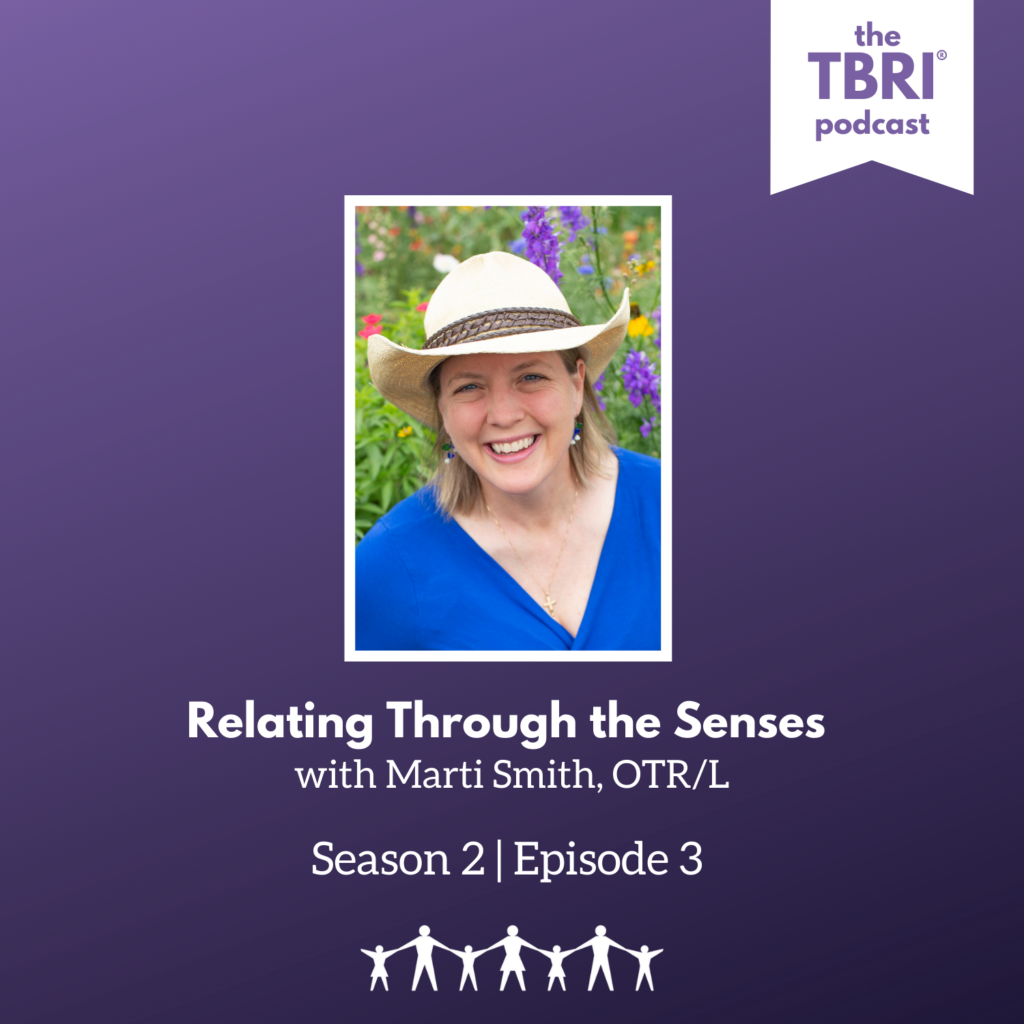The TBRI® Podcast | Season 2, Episode 3

On this episode, Marti Smith, OTR/L, and our host, Sarah Mercado talk all about Sensory Processing.
Apple Podcasts | Spotify
Or your favorite podcasting app!
Show Notes:
Linked References from this episode:
- Hope for the Journey Conference (formerly known as the Empowered to Connect or ETC Conference)
- Travis County Collaborative for Children
- Daren Jones
- Dr. Casey Call
- The Body Keeps the Score
- Raising a Sensory Smart Child
- The Connected Therapist – Relating Through the Senses
- Dr. David Cross
- Marti’s website
About our guest:
Marti Smith, OTR/L specializes in somatosensory treatment activities. She is a fellow with ChildTrauma Academy and a TBRI Practitioner. In her book, “The Connected Therapist: Relating Through the senses” she blends her personal and her professional backgrounds with her experience with the NMT and TBRI. Her passion is helping caregivers and professionals understand the sensory systems within a relational framework and equipping them with tools to help the children they love.
About the host:
Sarah Mercado is a Training Specialist with the Karyn Purvis Institute of Child Development (KPICD). As training specialist, Sarah’s main focus is instructing professionals working with children who have experienced trauma, in Trust-Based Relational Intervention® (TBRI®). TBRI®, a holistic, attachment-based, and trauma-informed intervention designed to meet the complex needs of vulnerable children, offers practical tools for caregivers to help those in their care reach their highest potential.
Sarah earned her Bachelor’s Degree from Sweet Briar College in Virginia. She began her career as a direct care staff working with adolescent boys living in a Residential Treatment Center (RTC). After serving in the RTC for several years, she shifted her focus to foster care, where she was Regional Director for a foster and adoption agency.
Sarah spent 20 years serving youth and families within residential and foster care settings as a direct-care worker and trainer before beginning her work with the Purvis Institute in May 2016. Sarah lives near Austin, TX with her husband, AJ, and their two children.
Good and very informative.
Good bunch of information.
Great subject matter and information.
Sensory process has to be activated What happened, why did this happen what do you do. There are children that do not have the ability to know or understand their sensory process. is the child over or under stimulated. How do you deal with this?
Professional help is required so that a healthy balance can be acquired.
Can sensory process disorder develop later in life with mental health disorders or mental health illness after major traumas which can start with a person cutting themselves or making wreck-less choices?
Wonderful information
Thank you for sharing. Very informative.
Thank you!
Thanks